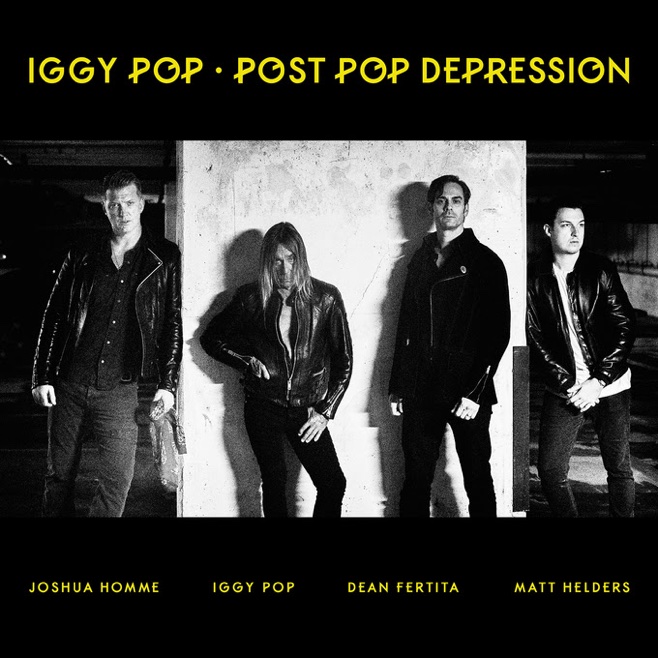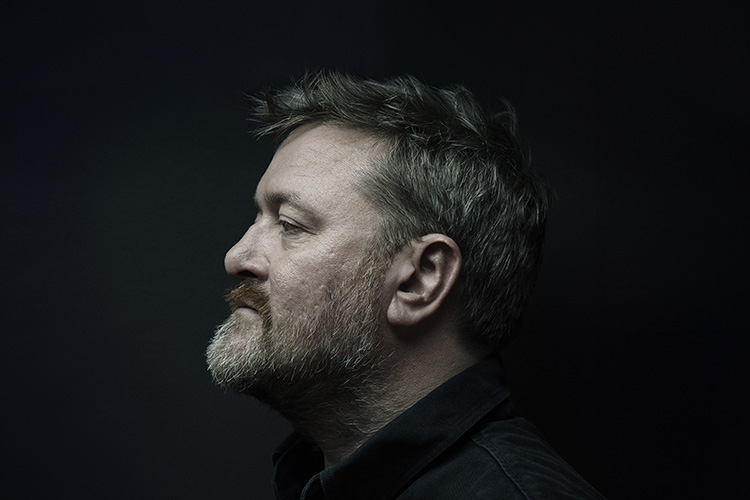The biggest challenge for an older artist with a lengthy career is to stay relevant and keep their audience interested. Some manage this with ease – Nick Cave has rarely put a foot wrong since the beginning of the 80s, for example – but most, including ‘godfather of punk’ Iggy Pop (on the scene a decade or so longer than Cave), will inevitably start to fly slightly under the radar after a while. In his early days he always worked best with strong collaborator, be it the rest of the original Stooges, James Williamson in their later incarnation – though none of these were quite able to recapture that magic on recent reunion albums – or David Bowie, who brought him to Berlin and helped him reinvent himself in the late 70s, and as it turns out, all he needed to do now was find the same chemistry with someone new to create his finest album in years.
Working with Queens Of The Stone Age’s Josh Homme for Post Pop Depression was a surprising move at first – though not as odd as working with Green Day and even Sum 41 on 2003’s Skull Ring, and certainly less objectionable. Homme has already long proved to have more staying power than the latter and a wider musical range than both, and the announcement accompanied by first single ‘Gardenia’ – having already recorded the album in secrecy with Homme’s bandmate Dean Fertita and Arctic Monkeys’ Matt Helders – garnered more press excitement than Iggy has probably seen in a few years. The strength of that single (which shares it’s name with one of Homme’s old Kyuss songs, yet couldn’t be more different) obviously helped, with its glowing guitars and a chorus that’s repeated endlessly, but is so beautifully melodic that it becomes hugely addictive rather than tiring. Follow up single and album opener ‘Break Into Your Heart’ is based around a classic Homme desert riff that could have come straight off QOTSA’s last album Like Clockwork, but finds its true home here dueting with Iggy’s trademark baritone.
Those two singles make for an impressive start to the album, and it’d be a big ask for the other seven tracks here to continue to scale the same heights. Unsurprisingly it doesn’t quite manage that, though there certainly aren’t any real dips here, and there are plenty of great moments throughout – most notably when the groove of ‘Sunday’ unexpectedly gives way to a coda of strings. There’s also a poignancy on display, as Iggy ponders whether he has outlived his usefulness on ‘American Valhalla’, insisting “I’ve nothing but my name” over Homme’s thundering bass, while ‘Chocolate Drops’ sees him seemingly reflect on his career’s ups and downs – “When you get to the bottom you’re near the top/The shit turns into chocolate drops” – as his baritone plays call and response with Homme’s falsetto.
Homme’s distinctive fingerprints are all over the album, but he works with a more refined palette than his often pummelling main band, and there’s a feeling of his and Iggy’s energies being channelled together, in a way which partly recaptures the spirit of The Idiot and Lust For Life despite not sounding a great deal like either. It’s difficult not to compare Post Pop Depression to these albums, largely due to the nature of its creation, though the inclusion of a track named ‘German Days’ here may be inviting comparisons deliberately.
Iggy has strongly suggested that this may be his final album. It’s hard to tell whether this is a recent decision inspired by the demise of his old friend Bowie, and the high on which he went out, or whether this has been brewing for a while – with both Asheton brothers having passed away in the last few years, he’s now the sole surviving member of his old band’s original lineup (which makes listening to The Idiot’s ‘Dum Dum Boys’ now all the more affecting) – but album closer ‘Paraguay’ does seem to double as both a fantasy of escaping the modern world and a potential farewell song, as he describes packing his things and heading down South America way, ending with a classic Iggy rant, stating “I wanna be your basic clod who made good/And went away while he could”, before storming “You take your motherfucking laptop and shove it into your goddamn foul mouth…Cos I’m sick and it’s your fault!” – a thrilling final statement.
It would be a shame if he hung up his microphone entirely, as he’s still a vital and energetic live performer even at the age of 68, but the exciting and resolutely current Post Pop Depression would be a fitting swansong to his recording career. There’s a lot to be said for going out on a high, and while this album may not match the forward-looking brilliance of Bowie’s Blackstar, it steers well clear of the baffling mismatch of Lou Reed’s final sojourn with Metallica, and most importantly, it avoids sounding tired or aged as those Stooges reunion albums often do. Cathal McBride






